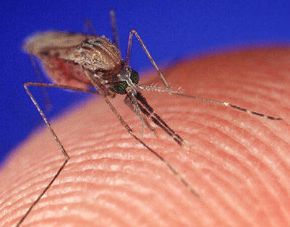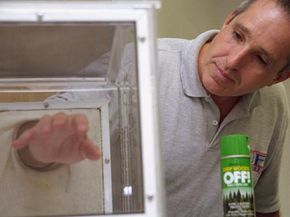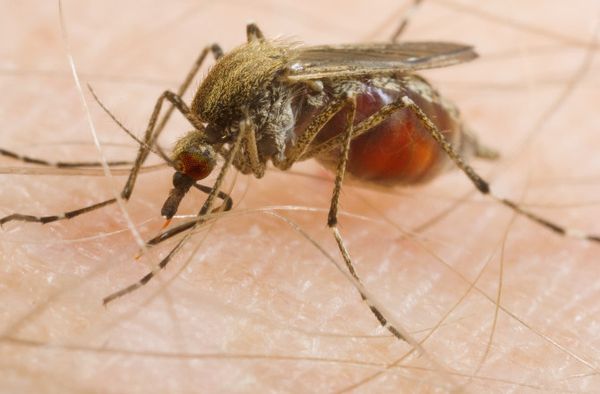Is there anything more annoying than the high-pitched buzz of a mosquito in your ear? As you wave your arms around your head, trying to shoo the insect away, another one lands on your leg. And the next day, your memories of yesterday's picnic are dotted with red, itchy bumps.
For most of us, mosquitoes are simply a nuisance. But in some parts of the world, they're much more than that. Mosquitoes and other biting insects spread disease and cause widespread fatalities. In fact, mosquito bites result in the deaths of more than 1 million people every year [source: WHO]. The majority of these deaths are due to malaria.
Advertisement
Fortunately, a compound called N,N-diethyl-meta-toluamide can keep these little buggers and their diseases at bay. You might know it by its household name, DEET. DEET is found in many insect repellents. It's a man-made chemical and is proven to deter insects like mosquitoes, black flies, ticks, fleas, chiggers and no-see-ums. Repelling these insects means a significant decrease in your chances of contracting malaria, West Nile virus, Lyme disease and many other insect-borne illnesses.
The U.S. Army developed DEET in 1946 to protect soldiers in jungles from mosquito-borne illnesses. In 1957, the government approved DEET for general public use, and today about 30 percent of the U.S. population uses DEET each year [source: NPIC]. You'll find DEET in most store-bought insect repellents -- liquid sprays, wipes, sticks and lotions. You can apply DEET directly to your skin or clothing, but you should never ingest it. When it comes to children, you should use DEET with care. Various concentrations of DEET are available, and it's not surprising to learn that repeated doses of high concentrations can be dangerous for your health.
Oddly enough, scientists aren't even completely certain why DEET works. Perhaps it prevents the mosquito from recognizing you as prey. Or perhaps it coats you with a scent mosquitoes simply find revolting. Either way, it doesn't kill the insects -- it just repels them.
DEET is not without controversy or side effects. In fact, the chemical that you slather on your skin at backyard picnics can actually melt plastic. How does that make you feel?
Advertisement



